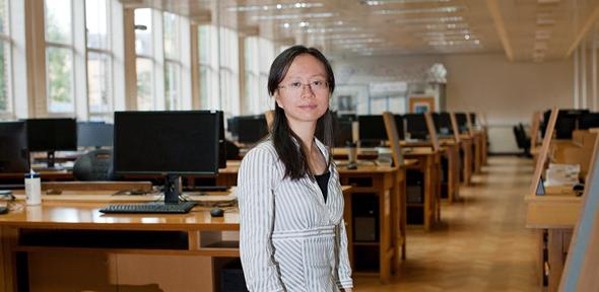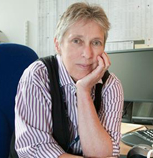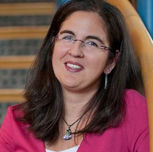
New book highlights the lives and work of women at the University.
Within an academic environment, too often the individual stories and voices are lost. Here we can reclaim a few of these and profit from what we hear.
Professor Dame Athene Donald, Gender Equality Champion at University of Cambridge
Staff from the Department of Engineering are featured in a book which looks at the lives and work of women at the University of Cambridge.
The Meaning of Success profiles 26 women at Cambridge – from world-leading academics, to key administrative staff – and features contributions from another 100.
Professor Dame Athene Donald, Gender Equality Champion at University of Cambridge, says in the preface to the book: “As I read the stories these women reveal, I was moved and I was excited. Within an academic environment, too often the individual stories and voices are lost. Here we can reclaim a few of these and profit from what we hear.”
Women featured are from across the spectrum of staff within the University and include masters of Colleges, senior scientists, office managers, an educational outreach officer and administrative staff.
Interviews with leading female figures within the University includes profiles of Dr Shery Huang and Rachel Fogg from the Department of Engineering and Dr Shima Barakat from the Judge Business School.
Dr Shery Huang is a University Lecturer in Bioengineering in the Department of Engineering and Director of Studies in Physics at Homerton College. She came to Britain from China as an overseas student at the age of seventeen.
Shery explains: “After my undergraduate degree, I came to Cambridge for a PhD and by my third year I had decided I wanted to pursue an academic career. I applied for lots of fellowships but was not able to secure any of them. Through that experience I learnt I had to improve myself and be more focused on my work in order to be more prepared the next time around. This approach led me to obtain an Oppenheimer Fellowship jointly with a Homerton College Junior Research Fellowship.
“How did I cope with the initial knockbacks? I guess it’s my personality. You just have to tell yourself that you believe you can do it, and you have to persevere. If I face a challenge, I may initially complain, but in the end I get on and do something about it. I guess I am resilient.”
 A degree in Modern and Medieval Languages has led Rachel Fogg into a varied career as well as time spent raising a family. Rachel is the Divisional Administrator for the Information Engineering Division in the Department of Engineering and PA to the Head of Division.
A degree in Modern and Medieval Languages has led Rachel Fogg into a varied career as well as time spent raising a family. Rachel is the Divisional Administrator for the Information Engineering Division in the Department of Engineering and PA to the Head of Division.
She said: “Success is about working in a way that fulfils the potential you have. I’m a linguist with a degree from Cambridge, and I could have had a career somewhere like the civil service. But I’ve looked to fulfil my potential in other ways.
“It’s not necessarily about getting to the top of the tree; it’s about using your gifts and aptitudes as best you can in various different environments. For example, I live in a small community and found my place in it by working out how best I could contribute. I became Chair of the School Governors, still run a Brownie group and am part of the choir. I don’t want to come across as too pious; I get involved in things that might be seen as worthy, but I do them because they are thoroughly enjoyable and I love being part of something.
“I genuinely love coming to work here every day. Engineering is a fascinating place with people working on everything from wind tunnels and jet engines to medical imaging techniques. I get most satisfaction from my working relationships. The academics, postdocs, PhD students and administration team are my people and I care about them."
Working at the Judge Business School as a Research and Teaching Fellow, Dr Shima Barakat started her career as a construction engineer. Her approach to situations is revealed in the book: “My starting point is that I have the power to change something and I go from there.”
Her attitude helped her deal with many situations, including being the only women in a Cairo construction workforce of 400, but she details how there is still a need to do more than expect the individual to change to fit a situation: “Our systems are inconsistent and based on a masculine world view. We need to question them because they determine who gets recognised as successful.”
Each in-depth interview is accompanied by portrait photographs by Pari Naderi – images that will feature in a special Success: Women at Cambridge exhibition to be held at the Fitzwilliam Museum in Cambridge.
The Meaning of Success also features contributions from another 100 women in the University, including Dr Claire Barlow and Dr Abir Al-Tabbaa from the Department of Engineering.
More information about the book, including excerpts and profiles, can be found at the Women at Cambridge website: www.cam.ac.uk/womenatcambridge. The book is available to view online and to purchase through Amazon.
The Fitzwilliam Museum’s exhibition of Pari Naderi’s photography will run from Tuesday, 11 March to Sunday, 16 March. Museum opening hours are: Tuesday - Saturday 10am - 5.00pm / Sunday: 12noon - 5.00pm.

